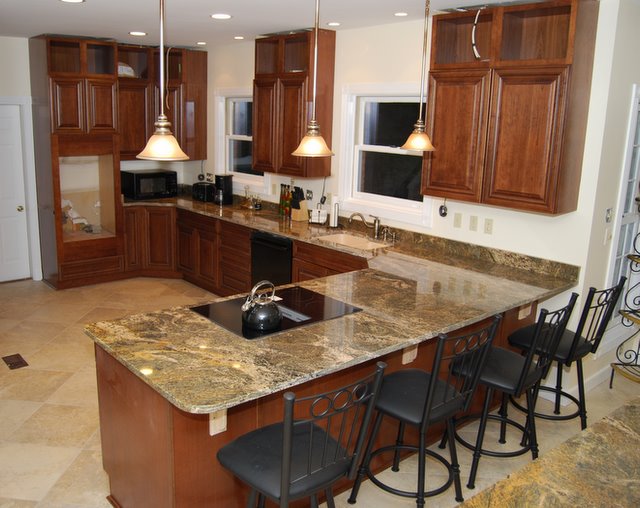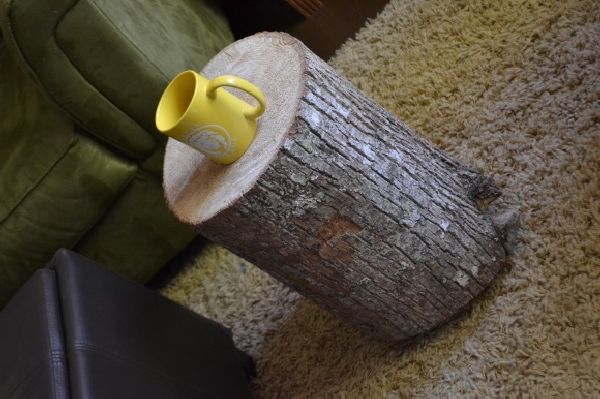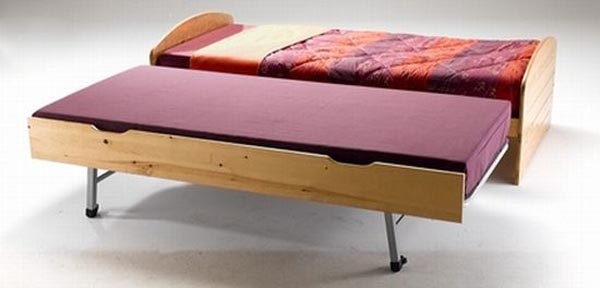You may be surprised to learn that granite has a big rival in premium countertops. Now a days, the latest trend in designer kitchen is quartz, which is the fresh, elegant and stylish alternative to high maintenance granite. Quartz is stronger than granite and requires no re-sealing. It is highly resistant to scratches and stains and comes in a huge variety of colors. Quartz countertops surfaces add a dimension of beauty unparallel to anything else in the kitchen and one gets double benefits of the investment as they easily withstand all the rigors of daily life. So, what are the main differences between granite and quartz? There are 3 main differences viz., how they are made, maintenance and their functionality.

How are they made?
Granites are unique and they are cut out of mountain sites into big blocks, which are sawed into slabs like a loaf of bread and polished and shipped to market. Quartz is unique and its crystal are actually mined, crushed up and mixed with resins, poured into a form of slabs, compacted and heat treated, to give them their slab forms.
Since granite is a natural stone and comes from the Earth, it has fissures in it. Fissures are inconsistencies in stone itself. When you cut a hole in granite, for example for sink or a cooktop, it weakens the stone a little bit. So, those fissures tend to crackle a little bit and over time it could crack the countertop. Quartz on the other hand, is entirely a different product, it is 93 percent quartz and 7 percent polymer filler, that is what keeps it all together.
Granite is non renewable; once removed from earth’s crust, it cannot be reused again and as far as quartz is concerned, its mining does have a clear impact in our environment. So, the neither of them are eco-friendly as far as their extraction and manufacturing is concerned.
Functionality
Many people believe that granite is virtual indestructible and it is true to a large extent but it is not indestructible. Many people tend to directly put the excessively hot pots from hot stove or oven on their granite countertops and think that it won’t scorch. Yes, it is true that it won’t burn the countertop but it is not recommended as it is natural stone and one cannot see the molecular structure of it. There could be a tiny fissure or a tiny little crack in that slab, which might not cause any problem in day to day life but as soon as there is a big temperature change, from regular room temperature to put a hot pot on it, the potential to crack increases.
Quartz is a hard material but there are chances of getting scratches from cutting and chopping on it but those scratches can be repaired and easily be buffed out. As for the hot pots, it is always recommended not to put any hot pots on countertop of either granite or quartz. But, since quartz is man made and non-porous, it is a heat resistant material and nothing is going to be absorbent to be it. It means nothing is going to stain quartz countertop and if one leaves anything sitting on countertop, it is not going to get absorbed into it.
Maintenance
Granite is a porous stone and it is sealed by factory before it reaches home. So, one has to keep up with the maintenance of that actual granite, that means it has to be sealed on yearly basis. When the natural seal of granite wears away with time or is gone and when it is not sealed again, it becomes porous again. It means if someone spills red wine on that granite countertop, which is porous, that red wine can work its way down the stone. Once it is in the stone, it will never come out it is there for life.
However, the beauty of quartz is that it is maintenance free. There is no sealing involved in it as it is a non-porous stone. Quartz has come a very long way since the days of granite, when granite first came in the market. Granite was the hype for many years but now more people are opting for quartz as it maintenance free and moreover it 5 or 6 times stronger than granite.
The winner
Quartz has become the most elegant answer for all those who love the look of the granite but are concerned about all of the drawbacks. Granite is a big issue when it comes to staining, be it spilling red wine or accidentally tipping out of cooking oil or scratches or blemish marks left over by other household cleaners, this is very different from quartz. Quartz on the other hand, is non-porous, which means it is resistant to heat and stains, and also unlike the natural granite, it won’t help the growth of mold, mildew and bacteria at their homes. Although, either of them is not considered to be very environment friendly, quartz does score a brownie point over granite. Because of its non-porous property, quartz could be used for longer period and can be recycled and used for different purposes whereas, granite it once stained or scratched cannot be restored and also cannot be used for other purposes.
Final word
Granite has to be sealed whereas quartz doesn’t have to be sealed and that’s one if the main factor to keep in mind while choosing either of the products. If one wants to go for basic natural look, granite would be the perfect choice but if staining and scratching are the things you want to avoid, quartz is the ideal choice. Apart from easy maintenance, quartz is elegant and gives that modern, contemporary and consistent look. So, overall, it is an ideal decision to go for quartz than to opt for granite.




